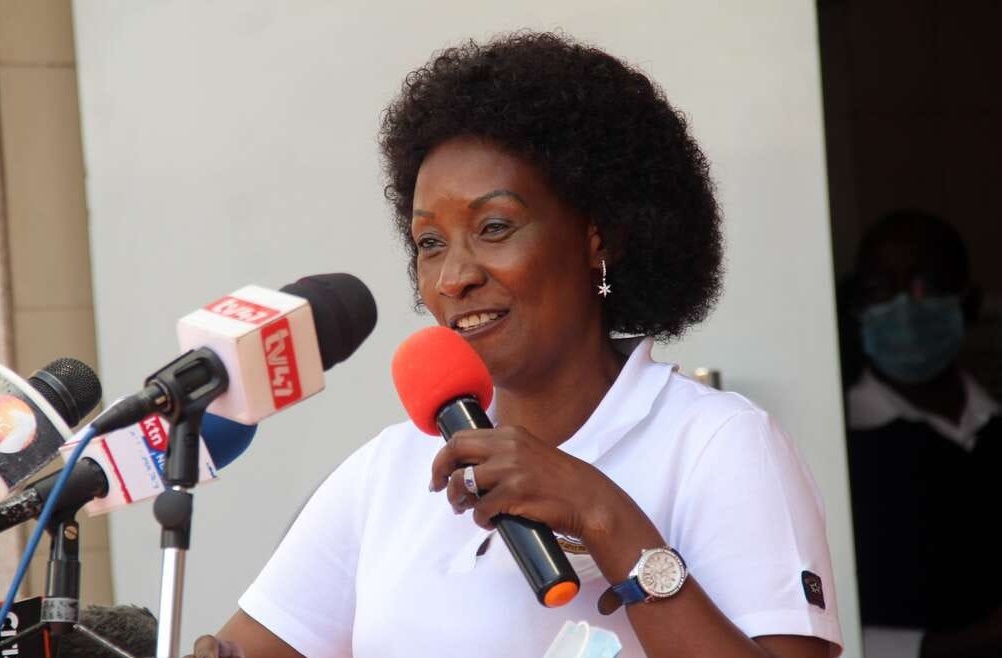Tsc Warns School Boms Against Defending Teachers Who Defile Students 2

The school located in Magarini area, which has 995 learners, 499 of whom are male and 496 female will undergo a facelift and have the opportunity to integrate ICT in their studies as demanded by the Competency Based Curriculum (CBC) once the project is completed.
Speaking during the ground breaking ceremony that brought together all the partners, teachers and school’s heads, Mr. Peter Angore, Imarika Foundation CEO, expressed joy and appreciation to all the parties that bought the noble idea to change lives through the computer lab project.
“I thank you for choosing Imarika Foundation as your implementing partner. The project shall be an eye opener in the community and the region and I urge us to come together again in future and put up another project in a different location in Kilifi,” he said.
Angore added that the computer lab will not only serve learners in the selected school, but also those in other schools around the area since Kibaoni would be the only school with such a facility. The official launch of the project is expected to done on November 26, this year.
Representatives of CFSK said their role in the partnership was to provide the needed total solution once the computers were in schools.
The solutions include providing the desired software that suits the learner as per the Kenya National Examination Council (KNEC) requirement, offering relevant content that touches on both CBC and the 8-4-4 curriculum and helping teachers and learners interact with the computers through the provision of Digital Literacy Programme (DLP).
Miriam Ndavi, Operations Manager at Computers for Schools Kenya, said that they had previously partnered with the Rotary Club to establish two computer labs in Kikuyu and Nanyuki.
Malindi Rotary Club president and former Rotary Club Assistant Governor, Mr. Erick Mwashigadi applauded the individuals behind the course and for choosing Kibaoni Primary as the first beneficiary school in the county.
“Despite the school being in a far-flung area of Kilifi County, I am hopeful that this project will be beneficial to both the leaners and their teachers,” he added.
Mr. Kizito, Makatiani, former President of the Lang’ata Rotary Club and the chief guest of the day, said DLP came about two years ago when Covid-19 hit the country and the club was looking for different ways to work with schools and carry out projects that were going to change lives and transform the schools they were working with.
The programme is expected to provide computers, train teachers on how to use them and help with the restructuring of the school’s timetable to fix computer lesson on it.
“The future is digital. CBC demands for computer literacy and the existence of the project in this school will help with the same,” he reiterated.
Makatiani said he was proud of the idea that the club’s next project was Magarini where learners for the first time would have the opportunity to study and later work like anybody else would in the world.
This is despite the school being surrounded by villages and other schools that face challenges such as food shortage, power problems and even lack of clean drinking water.
Makatiani said Rotarians were committed and dedicated to service to the community and their services were all at a volunteering basis, adding that they raise money and create a positive impact to the society.
“When conducting a project as Rotarians, when you give us one shilling, we will give you two and put it all in the said project. We add our time, network and money to ensure we do a good job in the community,” explained the former rotary president.
He however, urged school heads to come up with ways that will help maintain the facility once completed including working with the school’s alumni organisation, the parents association and the community at large
“Maintenance of the facility once completed would include paying electricity bills, maintenance of the machines, payment and management of the internet service and payment of any additional training that might be required for teachers to effectively handle leaners on the digital field.
The head teacher Sharifu Shehe, who also happen to be the first TSC teacher to be posted in the then young school in 2010 expressed confidence on the lab’s positive contribution to the school’s performance and total mean score in future.
He said the teachers were presently using own data bundles to access materials for the learners from the internet and the establishment of the computer lab would ease things and give them the freedom to adequately include technology in their lessons.
“In the year 2019, the school’s mean score was 240. The year 2020 it went up to 268 whereas in the year 2021 it was 282.44. The performance trajectory has been going up in the past years without the inclusion of ICT in the school and I believe the computer lab will help take the performance even much higher,” he said.
The school, however, faces numerous challenges including lack of about 28 toilets as expected by the Ministry of Education to serve the huge population and inadequate number of classes to host the learners.
